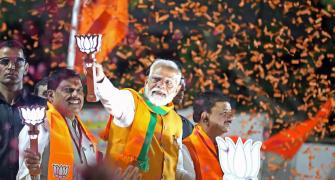There are few deals where the buyer and the seller both walk away happy. The SpiceJet deal is one, where each side had a price point for reference.
 There were two pivots which formed the basis for negotiations. SpiceJet had a dispersed shareholding, with no dominant controller but a holder of foreign currency convertible bonds who controlled a large chunk of the equity (30 per cent). A key driver for the deal was that W L Ross, the largest bond-holder, had to either redeem or convert the shares before November 11 this year.
There were two pivots which formed the basis for negotiations. SpiceJet had a dispersed shareholding, with no dominant controller but a holder of foreign currency convertible bonds who controlled a large chunk of the equity (30 per cent). A key driver for the deal was that W L Ross, the largest bond-holder, had to either redeem or convert the shares before November 11 this year.
If he had decided not to covert the bonds, and redeem these, he would have realised a value equivalent to Rs 35. Instead, if he had to capture the market price, he would have had to convert the bonds into shares, which would have triggered the open offer rule.
The second aspect of the deal was that Ross had a partner in Istithmar PJSC, which had decided to go its own way in February, and sell its stake to Indian mutual funds. On the one hand, this created a supply overhang and helped the buyer's cause. And, it also meant that if someone acquired just WLR's stake, he wouldn't acquire control of the company.
"These were the two unique aspects of the deal. On the one hand, you had dispersed shareholding, with large FCCB holdings that came with its complexities of conversion. On the other hand, you had Istithmar, which had decided to go its own way, which created a supply overhang on the stock," said a source close to the deal.
These were the two pivots which formed the basis of the talks that went on for almost three months. "From day one, we knew there will be a good deal available. From Ross' perspective, if someone gave him a reasonable price higher than his opportunity cost (Rs 35), he would be pleased," said a negotiator. It proved to be a win-win deal for both sides.
For the seller, the price point was Rs 35, and for the buyer, the reference was the market price (Rs 55-57). Maran started with a price of Rs 40; there were misleading reports in the media that the buyer had offered Rs 55. The negotiations were marked by silent periods in between, each expecting the other to blink.








